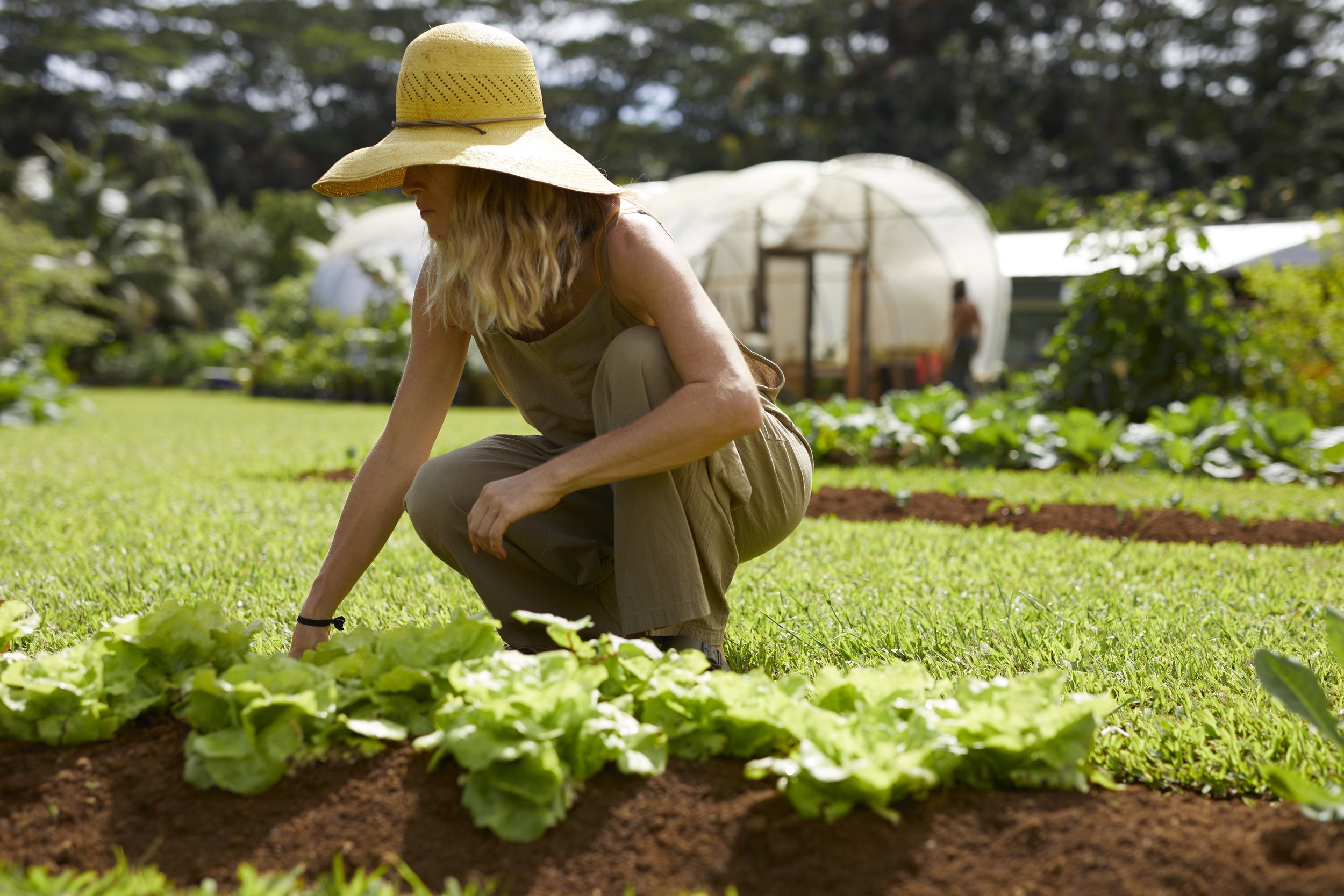
Regenerative Agriculture.
It all comes back to the health of the soil.
Due to intense mismanaged farming methods, the health of our soil is declining. Most are depleted in nutrients, which lends to nutrient-deficient food. The percentage of nitrogen in our soil has decreased by about 40 percent and phosphorus and sulfur by about 30 percent. To grow optimally, plants require these nutrients for photosynthesis, enzymes, protein synthesis, and more. Remineralization, or the application of a variety of minerals as soil amendments works to restore soil fertility. Our methods of soil building to increase the life of the soil include composting, mineral amending, organic fertilizers, chop and drop methods, and biochar. From this rich soil, plants will grow with optimum health and nutrition, and ultimately curb soil-borne pests.
Soil carbon sequestering, helping to restore degraded soil.
We recently acquired a biochar kiln to transform the offcuts from our wood mill into biochar. We estimate our biochar kilns production to produce 30 tons of material annually, that will capture 650 tons of stable CO2. This form of stable carbon is then sequestered into the soil playing a long-term beneficial role to soil performance as it improves the retention and diffusion of water and nutrients.
We are aiming for high-yield self-sufficiency, 70%-100% is our goal.
With healthy fertile soil as our base and a year-round growing season, we open up to an even greater opportunity for abundance. We are cultivating a living grocery store, with a goal to be 70-100% percent self-sufficient. A place where we can truly trust our food and receive the vital nourishment that is needed to thrive. Imported foods often have chemicals added to prevent fruits and vegetables from ripening, and artificial color added, making the food unhealthy and resulting in dangerous health declining side effects. Even the organic label has been proven untrustworthy and has become more of a marketing tool than anything. This increases our passion and need for self-sufficiency, growing our own food.
CONSCIOUS CULINARY:
We explore the importance of food culture.
Food provides more than just nourishment- it explores what we consume, how we prepare it, and the people that we share it with. As such, food culture is an important part of connecting and relating to our family, our community, and other cultures. At SOL Projex we wish to re-inspire our relationship with food, remembering the ways our ancestors used to prepare and nourish their families and villages. We share the joy and love connected to the experience.
A cause for concern – environmental impact of importation.
Additional reasons for our locally inspired offerings is do to concerns related to the reliance on imported goods. Currently Kauai imports 90% of its food source. Not only does this raise a concern for environmental pollution, but also for the effect of natural disasters which leaves residence without resources.
Food miles refer to the distance an item of food travels before reaching their consumer, often by polluting shipping containers. Food miles are estimated to be responsible for approximately 6% of the worlds total greenhouse gas emissions. To us, sourcing locally is part of being a regenerative low impact project.
We are here to inspire change, one delicious bite at a time.
We aim to inspire greater connection to our food source, knowledge about the abundance available in this year round growing climate, and confidence to create from an inspired taste. We offer a variety of services helping guide people to reintegrate back into their kitchens and make their own meals, creating a ripple effect of greater sovereignty and developing a more mindful approach to living in harmony with the earth. These offerings include cooking classes, farm to table dinners, community garden potlucks and plant identification walks.






